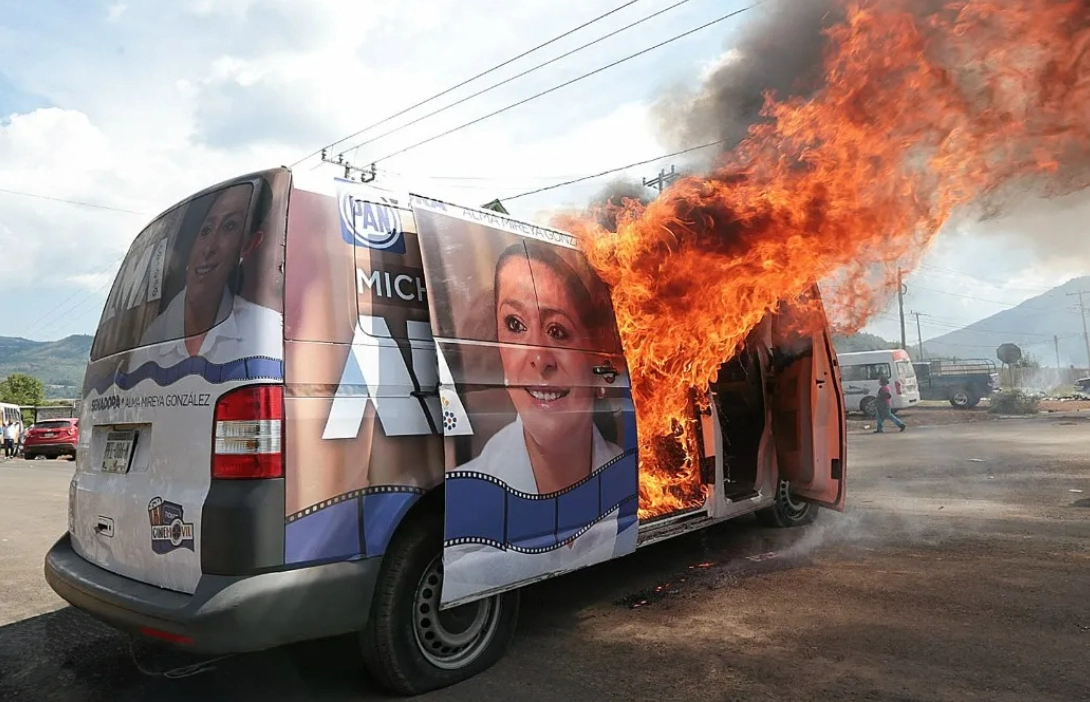Mexico will hold concurrent elections on June 2, 2024, in which approximately 100 million Mexicans registered on the nominal list could vote. As of August 31, 97,727,250 citizens were registered. On that day, the President of the Republic, 128 senators, 500 federal deputies, 8 governors, and the head of government of the great Mexico City will be elected. Likewise, the 32 local congresses and most of the city councils of the country will be renewed, which means more than 20,000 public positions in electoral dispute.
There are currently two pre-electoral campaigns of the already national coordinators: that of the coalition “Together we make history”, integrated by Morena Party, Work’s Party and Green Party, which will carry Claudia Sheinbaum, former head of the Government of Mexico City, as its candidate. And that of the coalition “Broad Front for México”, formed by the Revolutionary Institutional Party, the National Action Party, and the Democratic Revolution Party, which promotes Senator Xóchilt Gálvez as its candidate. There are also six aspiring independent presidential candidates who must obtain the support of 1% of the nominal list in order to participate in the contest for votes.
In this process, there is a belligerent actor that is organized crime and that every day gives the note in different states of the Republic with its assaults, fires, extortions, kidnappings, confrontations, murders, and challenges to the authorities of the three levels of government. These authorities are incapable of stopping their violence. So, the public scene is marked by forced displacements, abandoned towns, and fear of the unexpected.
Let’s remember that in the midterm elections of 2021, the organized crime cartels interfered in the electoral processes held in the states, causing the death of almost a hundred candidates, militants, and operators of all political arc, and it is likely that what we are seeing today is the preamble to their intervention in the elections of 2024.
The actions of the cartels are generating an atmosphere full of facts turned into images that produce fear in parts of society and that is reflected today in many places in a change of conventional routines: practically in those regions, social life ends at nightfall, not to mention the traffic on many highways and roads in the country.
This scenario leads to the political theory of rational action that puts on the table the incentives that citizens have to participate in a public call, whether social or political, under high-risk conditions. The answer would be in the matrix of “what do I gain and what do I lose if I participate in them” (prisoner’s dilemma).
Fear, then, becomes a spring that can lead citizens to become active in order to avoid further deterioration of public life and, with it, the loss of first-generation freedoms, or there is also the citizen who simply decides not to participate in order not to run unnecessary risks.
The two hypotheses, there is no doubt, will be at stake next spring: there will be those who see participation as a civic duty to defend liberties, and also the others, especially in those regions more punished by violence, where there will probably be difficulties to set up the polling stations, as before.
Which coalition is favored by such a situation?
It will depend on the preferences of each of the cartels and the areas under their control. It has been demonstrated that their intervention in the elections is key to influencing political decisions, and in some known cases, in the destination of public investments where they have found a way to control the municipalities’ spending.
The candidates of the “Together we make history” coalition were the main beneficiaries in the 2021 elections, as evidenced by their overwhelming victories in the coastal states, from southern Chiapas to the Baja California border, as well as the strategic border state of Tamaulipas.
And, although there is no certainty that this will be repeated, the atmosphere of violence that precedes these elections does not favor optimism about the restraint that the institutions of Mexican democracy could impose, especially if the main organizer, which is the National Electoral Institute, is in question when Morena militants begin to take over strategic areas.
Mexico is going to highly competitive elections, and future coalitions have launched strategies to weaken the adversary and thus frame their electorate. The polls of voting intention favor Claudia Sheinbaum, but Xóchilt Gálvez is less than ten points away.
And this happened when last September 7 the General Council of INE was installed and officially started the 2023-2024 electoral process; now will come the phase of the so-called pre-campaigns from November 5, although, having defined the candidates, the campaigns for the presidency of the Republic have practically already started with a violent, smoky and noisy environment that does not augur an exercise in conditions of democratic normality.
*Translated by Janaína Ruviaro da Silva from the original in Spanish.












